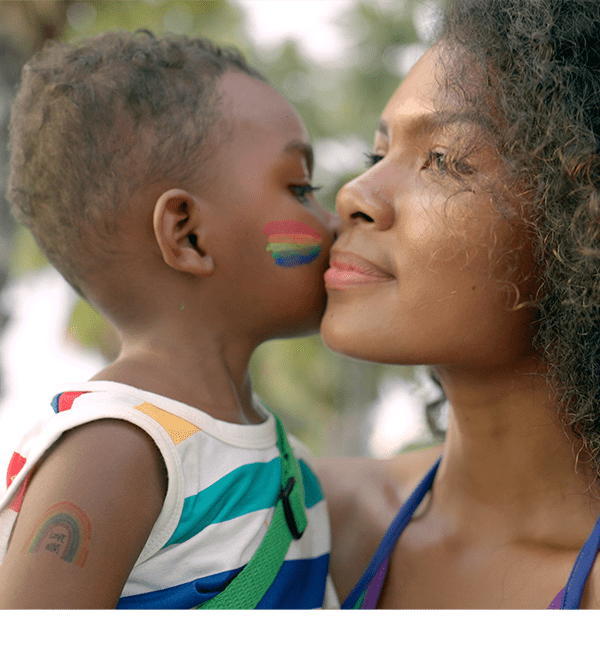Here at Erikson, we train the early childhood workforce to embrace the whole child; where they are, as they are. It’s a perspective that is essential in the healthy developmental journey of very young children. From the beginning, they’re exploring the connection between gender and their sense of Self. This necessarily involves both socialization and their environment. As trusted adults in their world, we can create spaces and offer responses that facilitate self-discovery.
Considering socialization and its impact on the developmental process, we must ask ourselves “what gender messages are we conveying to children?” Not surprisingly, there can be a binary-bias expressed in ‘either/or’ thinking. Likely that’s what many of us grew up with ourselves. With awareness, we can shift to a more fluid understanding of early childhood development, and adopt a “both/and” way of seeing. A simple example: pink and blue are for both boys and girls. A child’s early exploration can express itself in myriad ways. The Mayo Clinic notes, “It’s important to remember that gender identity and gender expression are different concepts. A child’s gender identity doesn’t always lead to a certain gender expression. And a child’s gender expression doesn’t always point to the child’s gender identity.”1
By avoiding the over definition or labeling of children’s behaviors, we expand the potential for discovery. Erikson Assistant Professor Meghan Green observes, “Exploring gender identity is a natural part of child development. When children have a more fluid opportunity for gender expression without being defined as ‘this’ or ‘that’, that’s part of honoring the whole child.” She adds, “Even very young children express an extraordinary amount of agency. We’re here to embrace that. Allow space for it. Within a supportive environment, they benefit from having choices and making decisions. We don’t need to forecast a child’s future. There is power in believing in where a child is right now.”
What children experience in the world around them is what they will reflect back into it. An openness for exploration, and space to safely, freely experience themselves and their environment benefits very young children and becomes a foundation for greater empathy. “Showing love and acceptance helps children feel comfortable in their bodies and in the world,” offers the Mayo Clinic.2 As Meghan Green sums it up, “An empathetic world is one where differences don’t immediately translate into conflict. If I am seen and heard, it is easier for me to see and hear others.”
Erikson is proud to be a nationally recognized leader in early childhood development. Build bright futures with Erikson Institute.
Sources
1,2 The Mayo Clinic, “Healthy Lifestyle, Children’s Health”, 2024 https://www.mayoclinic.org/healthy-lifestyle/childrens-health/in-depth/children-and-gender-identity/art-20266811

Join the Erikson family with monthly news + events updates shared by academics, community members, and families.